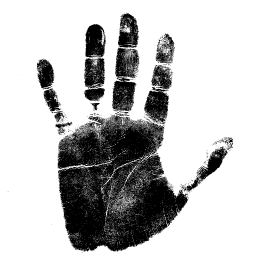Confucius molded Chinese civilization in general and judging by the
Analects, one can see that he exerted great influence on Chinese philosophical development. There is a humanistic tendency in Confucius’ thought. He did not care to talk about spiritual beings or even about life after death. Instead, he believed that we can make the Way (
Tao) great.
Confucius concentrated on man. His primary concern is a good society based on good government and harmonious human relations. Confucius believed in the perfectibility of all men and in this connection he radically modified a traditional concept, that of the “superior man” or chün-tzu. How can one be
chün-tzu?
One can broadly sum up Confucius system in a handful of principles:
1-
T’ien (or heaven) is purposive, the master of all things. Confucius idea of
T’ien is that of immanence: “Heaven sees through the eyes of the people, Heavens listens through the ears of the people.” Not necessarily anthropomorphic but anthropogenic. Heaven is embodied in the people and exemplified by the people. Heaven is a principle and that relates to human as that of part/whole relationship.
2- The Mandate of Heaven or
T’ien Ming consists of a Supreme Being who institutes a moral principle to operate by itself. That’s the principle of Heaven, T’ien Tao, later on called T’ien-li.
3-
Jen (also pronounced as “ren” means indistinctly, altruism, humanity and fairness). “Jen” appears more than 100 times in the Analects.
Jen also requires compassion: “Do not impose to others what you don’t want.” This negative form of the golden rule is essential in Confucianism for it tells people what not to do. “If you want to establish yourself, establish others. If you want to promote yourself, promote others.” To be able to apply the golden rule one has to follow a method
4- “Shu” which means to be empathetic, i.e., to be able to understand the circumstances.
Shu is the right method to achieve
jen. There are certain important virtues that can help in the process. They are:
respectfulness (gong),
reverence (jing),
leniency (quan),
beneficence (hui),
being quick in action (ming),
reliability in words (xing) and
cultivating slowness to speak (yan ren).
Gong can be best explained as self-respect, self-worth. The Confucian self needs to be cultivated holistically (the mind is as important as the body).
Next there is
jing, or reverence, but a better term is estimation. It’s a public virtue. How can one esteem something or someone? When one avoid the short-sightedness of the moment and ponders the far reaching implication of our actions. One becomes socially productive when one leaves pettiness and jealousies behind.
Quan is a principle of charity. It means magnanimity, being able to being thorough with oneself and the others, but suspending judgment until one has all the possible evidence.
Quan doesn’t rule out criticism, only that it analyses it more and applies it to oneself.
Quan presupposes self-awareness.
Xing relates to the idea of moral coherence between intentions and words,
which amounts to honesty: One is reliable if one is trustworthy.
Yan ren is very close to our idea of prudence.
5- Shu needs “Xue” or learning. Not an achievement verb, but rather a stronger sense of affecting oneself whether by improving one’s sensitivity, understanding or ability. With
xue one appropriates what’s learned, a process of becoming transforming.
Xue is accompanied by,
6- “Si,” that is, reflecting. “Learning without thinking, one will be perplexed, thinking without learning, one will be in peril.” (A, 2:15).
7- An important theme in Confucian ethics is
The Doctrine of the Mean or “Zhong-Yong.” It means centrality, non-deviation: not to be “one-sided.” It doesn’t mean staying in the middle no matter what: “Excess is as bad as deficiency.” (A, 20:1). Enduring, undeviating behavior that includes genuineness on one hand and steadfastness and persistence on the other. Implies non-deviation from this way.
8- There is also
Rectification of names (
Pinyin). This essentially means that for every action, there is a word that describes that action. The belief is that by following the Rectification of Names you would be following the correct/right path. By calling things what they are, we avoid confusion. RON also presupposes the idea of honesty in our
speech acts.









